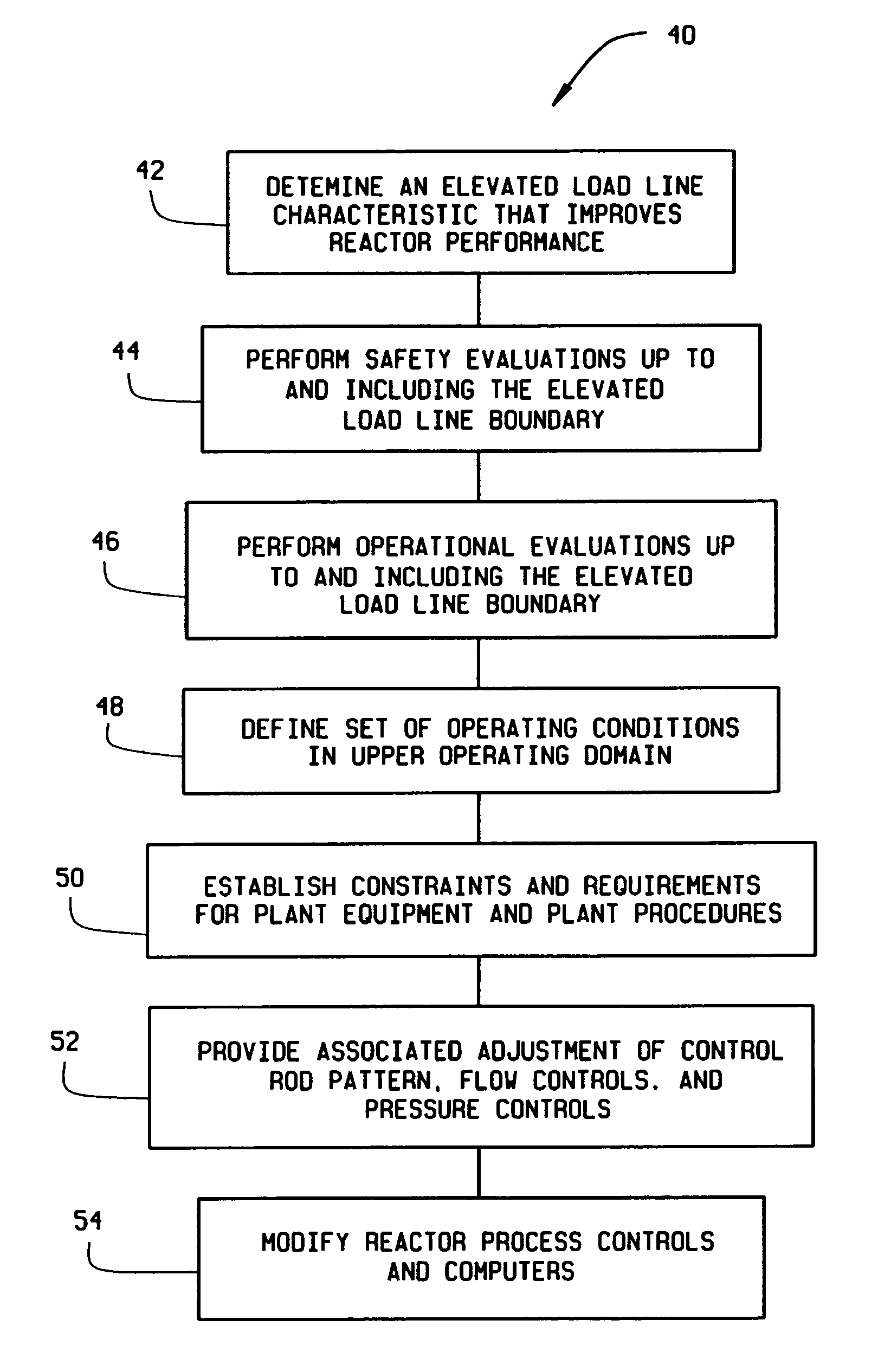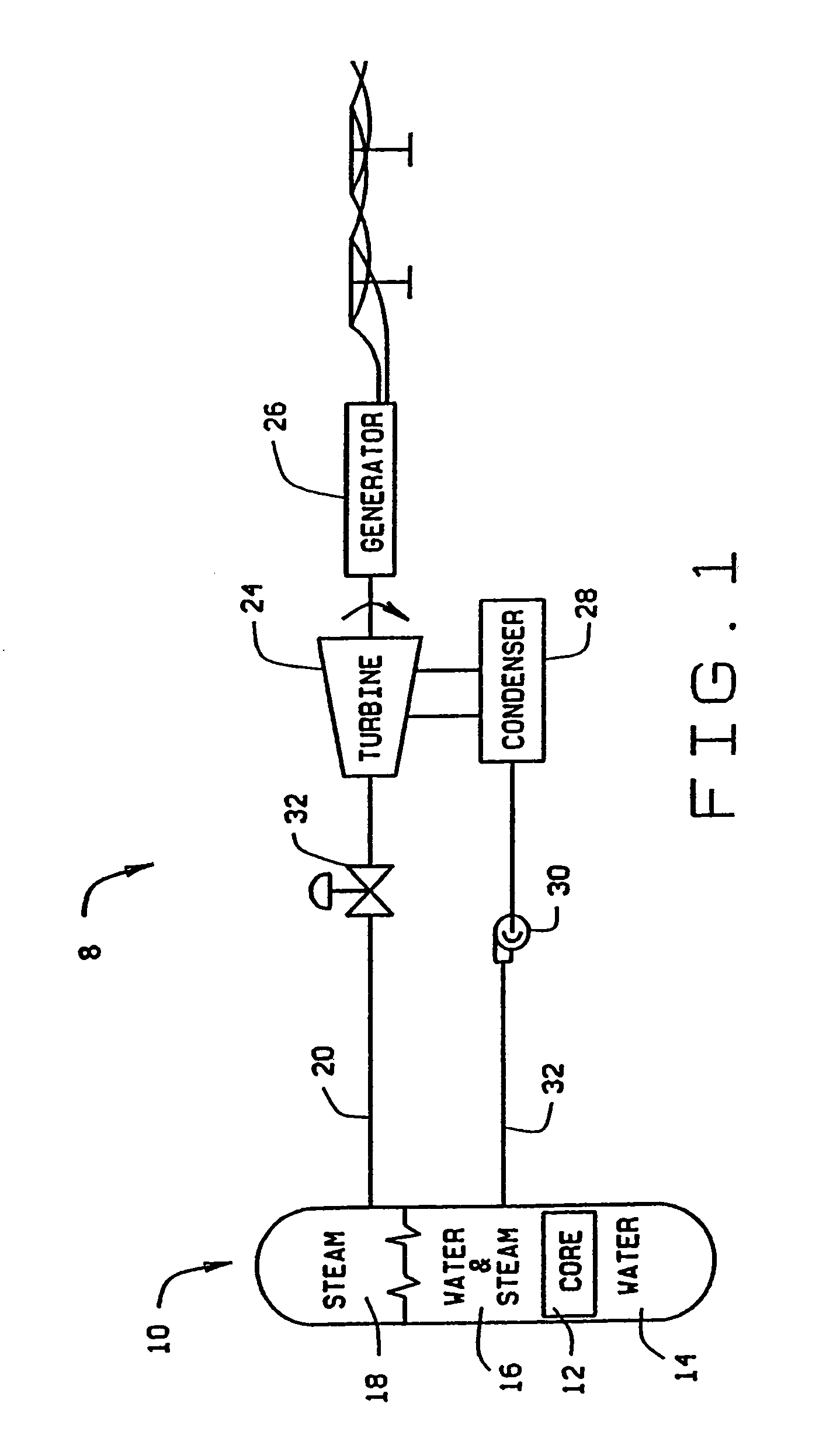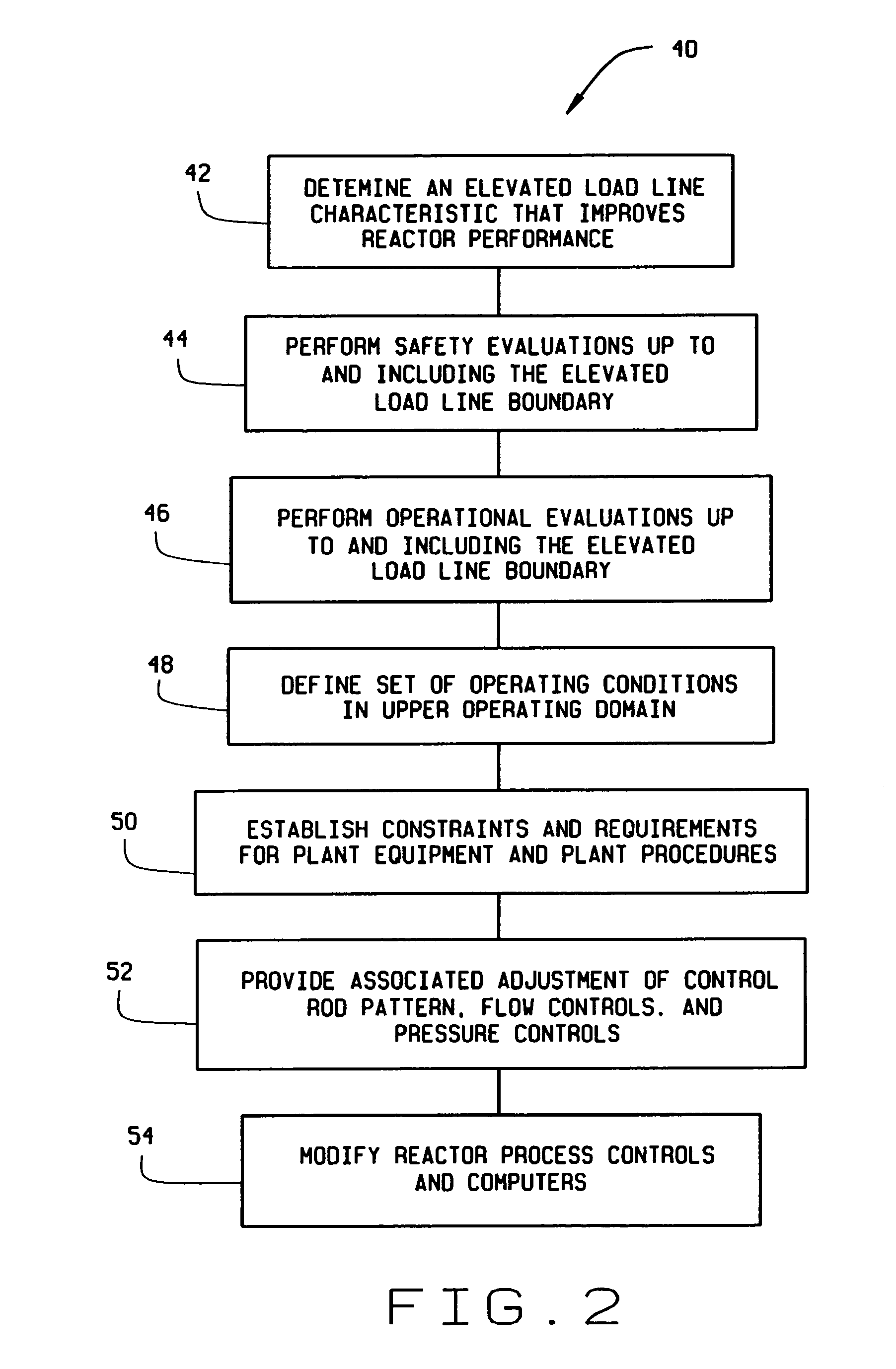Maximum extended load line limit analysis for a boiling water nuclear reactor
a nuclear reactor and maximum extended load technology, applied in the field of nuclear reactors, can solve the problems of reducing flexibility during startup and at full power, and achieve the effects of reducing fuel cycle costs, increasing operating flexibility, and increasing core flow rang
- Summary
- Abstract
- Description
- Claims
- Application Information
AI Technical Summary
Benefits of technology
Problems solved by technology
Method used
Image
Examples
Embodiment Construction
[0018]FIG. 1 is a schematic diagram of the basic components of a power generating system 8. The system includes a boiling water nuclear reactor 10 which contains a reactor core 12. Water 14 is boiled using the thermal power of reactor core 12, passing through a water-steam phase 16 to become steam 18. Steam 18 flows through piping in a steam flow path 20 to a turbine flow control valve 22 which controls the amount of steam 18 entering steam turbine 24. Steam 18 is used to drive turbine 24 which in turn drives electric generator 26 creating electric power. Steam 18 flows to a condenser 28 where it is converted back to water 14. Water 14 is pumped by feedwater pump 30 through piping in a feedwater path 32 back to reactor 10.
[0019]FIG. 2 is a flow chart of a method 40 for expanding the operating domain of boiling water nuclear reactor 10. In one aspect, method 40 is applicable to boiling water nuclear reactor plants which can operate at higher than the original rated thermal power, whe...
PUM
 Login to View More
Login to View More Abstract
Description
Claims
Application Information
 Login to View More
Login to View More - R&D
- Intellectual Property
- Life Sciences
- Materials
- Tech Scout
- Unparalleled Data Quality
- Higher Quality Content
- 60% Fewer Hallucinations
Browse by: Latest US Patents, China's latest patents, Technical Efficacy Thesaurus, Application Domain, Technology Topic, Popular Technical Reports.
© 2025 PatSnap. All rights reserved.Legal|Privacy policy|Modern Slavery Act Transparency Statement|Sitemap|About US| Contact US: help@patsnap.com



